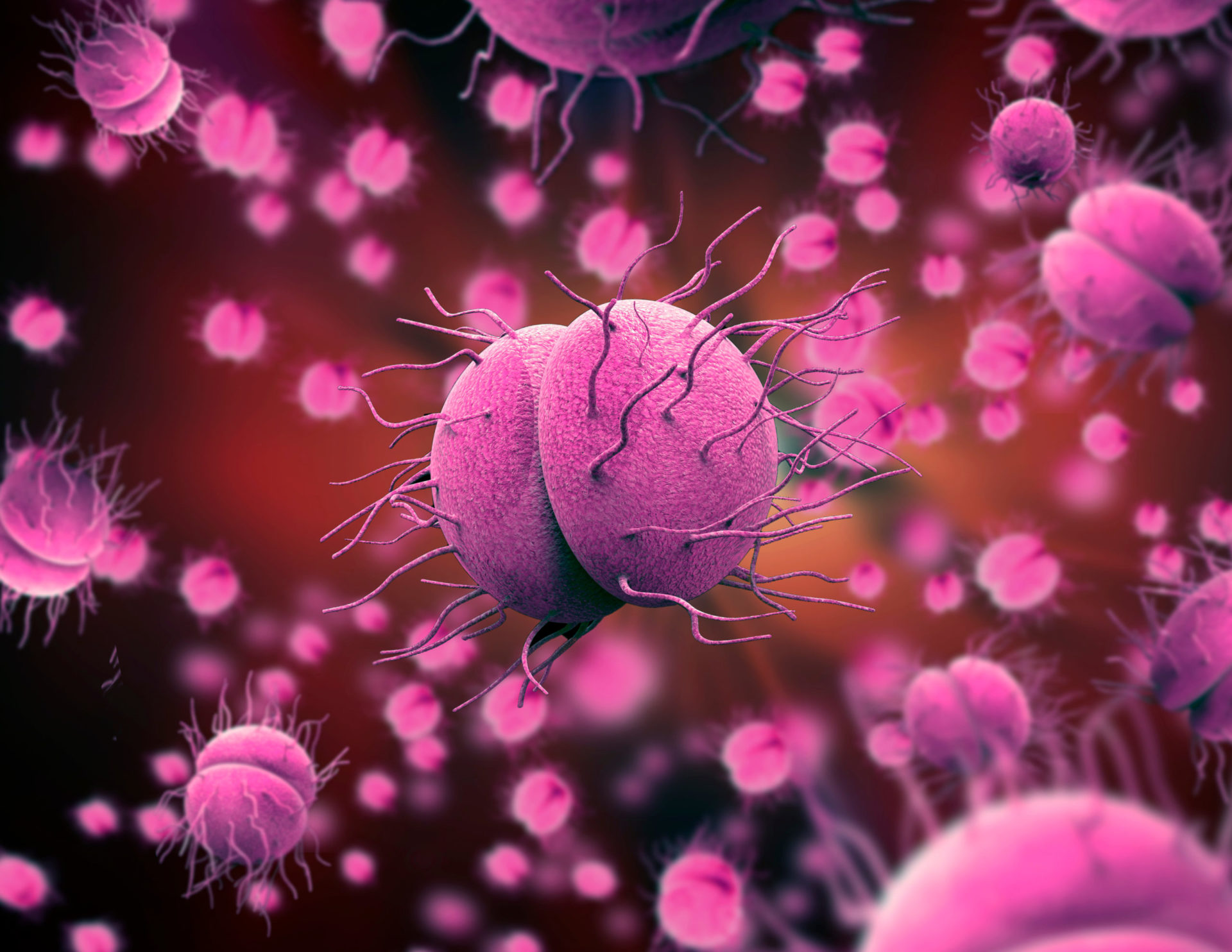If you have had unprotected sex or are worried about possible infection with gonorrhea or other STIs, get tested as soon as possible – even if you don’t have symptoms.
What is Gonorrhea?
Gonorrhea is a sexually transmitted infection caused by a bacterium called Neisseria gonorrhoeae or gonococcus.
Is Gonorrhea a serious condition?
Gonorrhea can be treated and cured easily. Untreated, gonorrhea can cause infertility (inability to have children) and other health problems.
Gonorrhea can be passed from mother to child during birth. Gonorrhea can be more dangerous in babies: it can cause eye infections such as conjunctivitis, which in severe cases can lead to blindness in the child.
How is Gonorrhea transmitted?
Gonorrhea can be transmitted very easily and can be caught by:
- unprotected sex (sex without a condom or dental dam), vaginal, anal and oral sex with someone who has Gonorrhea (even if they have no symptoms);
- using sex toys that are not washed or covered with a new condom every time they are used;
- if your genitals come into contact with your partner’s genitals – this means you can get Gonorrhea from someone, even if there is no penetration, orgasm or ejaculation.
It’s also possible to get gonorrhea in your eyes if your eyes come into contact with an infected person’s semen or vaginal secretions. However, this is rare.
Gonorrhea, HIV and sexual health
- If you have an STI, including gonorrhea, your risk of getting HIV increases.
- If you live with HIV and have Gonorrhea, your viral load may be higher because your immune system is weaker. This will make you more likely to transmit HIV if you have sex without a condom.
- However, if you have an undetectable viral load (because you are taking ARV treatment), there is no evidence to show that Gonorrhea increases your risk of transmitting HIV.
- If you are taking ARVs, it is important to discuss with your doctor how treatment for Gonorrhea might interact with HIV drugs.
How do I protect myself against Gonorrhea?
- Use a new condom (male or female) or a dental dam every time you have anal, vaginal, or oral sex.
- Use a new dental dam or latex gloves for rimming and fingering (exploring your partner’s anus with your fingers, mouth, or tongue) or use latex gloves for fisting.
- Cover sex toys with a new condom and wash them after use.
- Limit the number of sexual partners you have; remember to use a new condom for each partner and get tested regularly.
Note – apart from condoms, other types of contraception (such as contraceptive pills) or PrEP do not protect against sexually transmitted infections.
What are the symptoms of Gonorrhea infection?
Many people with Gonorrhea have no symptoms. If you do have symptoms, you will normally notice them within 10 days of infection, but they can occur many days later. You may also have a Gonorrhea infection in your penis, anus, throat or eyes.
Symptoms in men include:
- white, yellow, or greenish discharge from the penis
- pain or burning when urinating
- pain and/or swelling of the foreskin
- pain in the testicles – rare.
Symptoms in women include:
- yellow or greenish discharge from the vagina
- pain or burning when urinating
- pain in the lower abdomen – especially when having sex
- bleeding between periods and/or heavier, painful periods
- bleeding after sex – rare.
Symptoms for both women and men include:
- inflammation (redness) of the eye (called conjunctivitis) caused by contact with semen or vaginal fluid (if it gets into the eye).
Can I get tested for gonorrhea?
Yes – medical staff may request a urine sample.
For men, a swab can be taken from the tip of the penis (urethra). If you have had anal or oral sex, a swab may need to be taken from your rectum (bottom) or throat. In some countries a self-collection kit is available.
If you have gonorrhea, you should also be tested for other STIs. It’s also important to tell your recent sexual partner so they can also be tested and treated. Many people who have Gonorrhea don’t notice anything and by telling them, you can help stop transmission and also prevent re-infection.
How is Gonorrhea treated?
Gonorrhea passes with a short course of antibiotics.
Whether you have symptoms or not, don’t have sex until you and your partner finish treatment and only after your doctor tells you it’s safe.
Note – you can get gonorrhea even if you’ve had it before. Treatment cures the current infection but doesn’t make you immune – that means you can get infected again.
Complications of Gonorrhea
- As with most STIs, Gonorrhea puts you at risk of getting other STIs, including HIV.
- Untreated, Gonorrhea can lead to other health problems.
In men, untreated gonorrhea can cause:
- Epididymitis – infection of the tubes that carry sperm from the testicles to the outside; can lead to fever, pain in the testicles and swelling.
In women:
- Pelvic inflammatory disease (PID) – infection of the uterus, ovaries and fallopian tubes causing pelvic pain and fever. PID can be treated with antibiotics, but left untreated it can lead to long-term pelvic pain, inability to get pregnant and even ectopic pregnancy (pregnancy outside the womb), which can be very dangerous.
In both women and men:
In rare cases, untreated gonorrhea can spread to other parts of the body, causing:
- inflammation of joints and tendons
- skin irritation and redness
- inflammation around the brain and spinal cord (meningitis) or heart.

